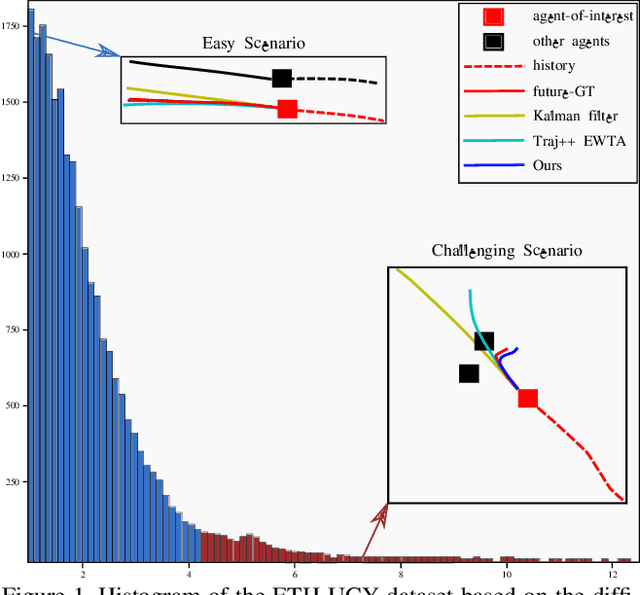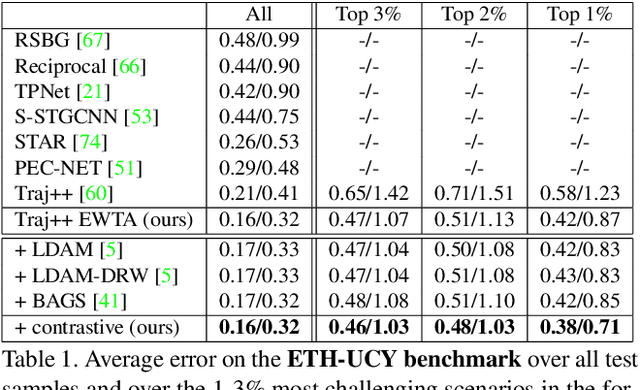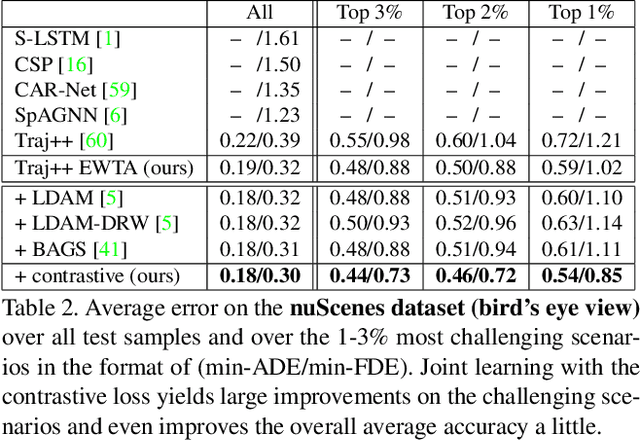On Exposing the Challenging Long Tail in Future Prediction of Traffic Actors
Paper and Code
Mar 24, 2021



Predicting the states of dynamic traffic actors into the future is important for autonomous systems to operate safelyand efficiently. Remarkably, the most critical scenarios aremuch less frequent and more complex than the uncriticalones. Therefore, uncritical cases dominate the prediction. In this paper, we address specifically the challenging scenarios at the long tail of the dataset distribution. Our analysis shows that the common losses tend to place challenging cases suboptimally in the embedding space. As a consequence, we propose to supplement the usual loss with aloss that places challenging cases closer to each other. This triggers sharing information among challenging cases andlearning specific predictive features. We show on four public datasets that this leads to improved performance on the challenging scenarios while the overall performance stays stable. The approach is agnostic w.r.t. the used network architecture, input modality or viewpoint, and can be integrated into existing solutions easily.
 Add to Chrome
Add to Chrome Add to Firefox
Add to Firefox Add to Edge
Add to Edge